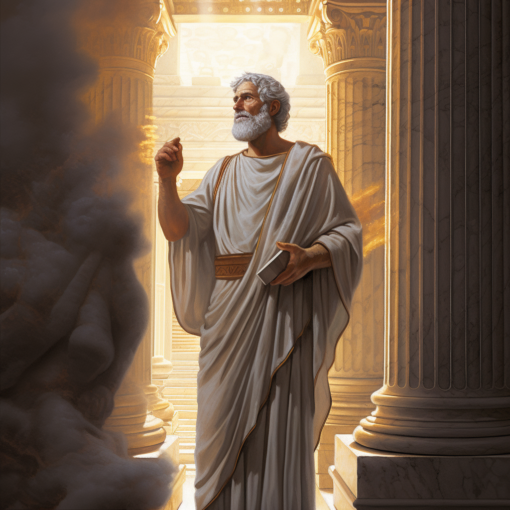Time – an abstraction as ubiquitous as it is elusive. We measure it, spend it, waste it, and constantly run out of it. We perceive it as linear, forward-moving, a ceaseless march toward the future. But is time merely a human construct, a framework we’ve imposed on the cosmos to make sense of our existence? Or does it have an objective reality independent of human consciousness?
In the realm of philosophy, time has been a topic of profound speculation for millennia. Ancient Greek philosophers such as Heraclitus and Parmenides debated the nature of time, with Heraclitus positing that everything is in flux and time is an ongoing process of change. In contrast, Parmenides argued that time is illusory, and reality is timeless and unchanging.
Fast forward to the modern era, where philosophers like Immanuel Kant contended that time is not an objective entity but a fundamental part of our mental framework. According to Kant, we perceive the world in a temporal sequence because our minds are structured to do so, not because the universe itself is temporal.
But the story of time doesn’t end with philosophy. The advent of Einstein’s theory of relativity revolutionized our understanding of time, introducing the concept of spacetime – a four-dimensional fabric woven from the three dimensions of space and one of time. Time was no longer absolute but relative, dependent on the observer’s state of motion.
Quantum physics further complicates our understanding of time, with its probabilistic nature and the mysterious phenomenon of quantum entanglement, where particles can affect each other instantaneously, seemingly defying the limit of the speed of light and the flow of time.
Yet, despite these scientific advancements, time remains a mystery. Do the past, present, and future exist simultaneously, as suggested by the block universe theory? Is time travel possible, as implied by certain solutions of Einstein’s equations? Could there be a universe where time flows backward?
The questions are endless, and the answers are yet beyond our grasp. As we continue to explore the enigma of time, we’re not merely trying to understand the universe but also the intricate workings of our own minds. For it is within our consciousness that the riddle of time unravels, where the past lives as memory, the future as anticipation, and the present as fleeting perception.
Whether time is an illusion or a fundamental aspect of reality remains uncertain. What is certain, however, is that our perception of time, our ability to remember the past and envision the future, is a cornerstone of our humanity. It allows us to learn, grow, create, and ultimately, make sense of our existence in this vast cosmic theater.
As we continue to ponder time, let us also remember to embrace it, for it is within its inexorable flow that we find our most human moments – moments of joy, sorrow, love, and discovery. After all, time, as we perceive it, is the stage upon which the drama of life unfolds. So, let’s cherish it, ponder it, and continue our philosophical quest to understand it.

Further Reading:
- Stanford Encyclopedia of Philosophy: Time A comprehensive exploration of the concept of time in philosophy, from ancient to modern theories.
- BBC Future: The Man Who Lives in the Past A thought-provoking article discussing Julian Barbour’s theory that time does not exist.
- Scientific American: Is Time an Illusion? A digestible exploration of the scientific and philosophical arguments for and against the reality of time.
- Physics of the Universe: The Nature of Time A detailed look into Einstein’s theory of relativity and its implications for our understanding of time.





10 thoughts on “The Enigma of Time: Unraveling Humanity’s Most Intriguing Concept”
Can you be more specific about the content of your article? After reading it, I still have some doubts. Hope you can help me.
Your article helped me a lot, is there any more related content? Thanks!
Thanks for sharing. I read many of your blog posts, cool, your blog is very good.
Thanks for sharing. I read many of your blog posts, cool, your blog is very good.
Thanks for sharing. I read many of your blog posts, cool, your blog is very good. https://www.binance.info/hu/register?ref=FIHEGIZ8
Can you be more specific about the content of your article? After reading it, I still have some doubts. Hope you can help me.
Thanks for sharing. I read many of your blog posts, cool, your blog is very good.
Thank you for your sharing. I am worried that I lack creative ideas. It is your article that makes me full of hope. Thank you. But, I have a question, can you help me?
Can you be more specific about the content of your article? After reading it, I still have some doubts. Hope you can help me. https://accounts.binance.com/hu/register?ref=IQY5TET4
Great website. Plenty of helpful info here. I am sending it to several pals ans also sharing in delicious. And of course, thank you to your effort!